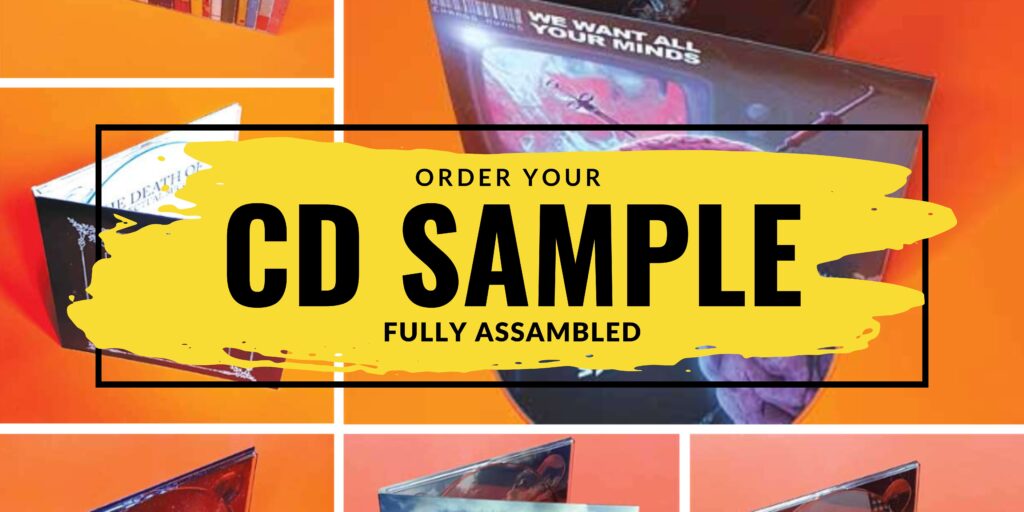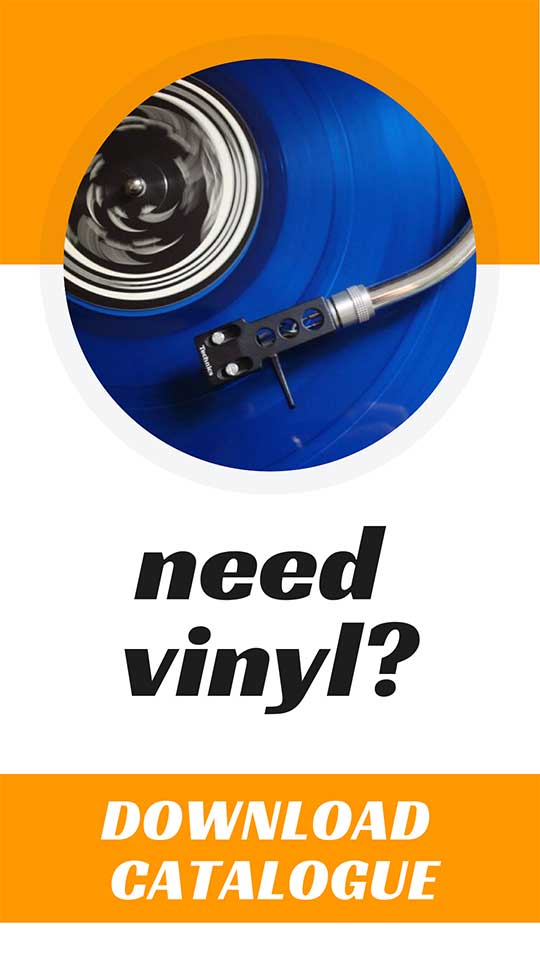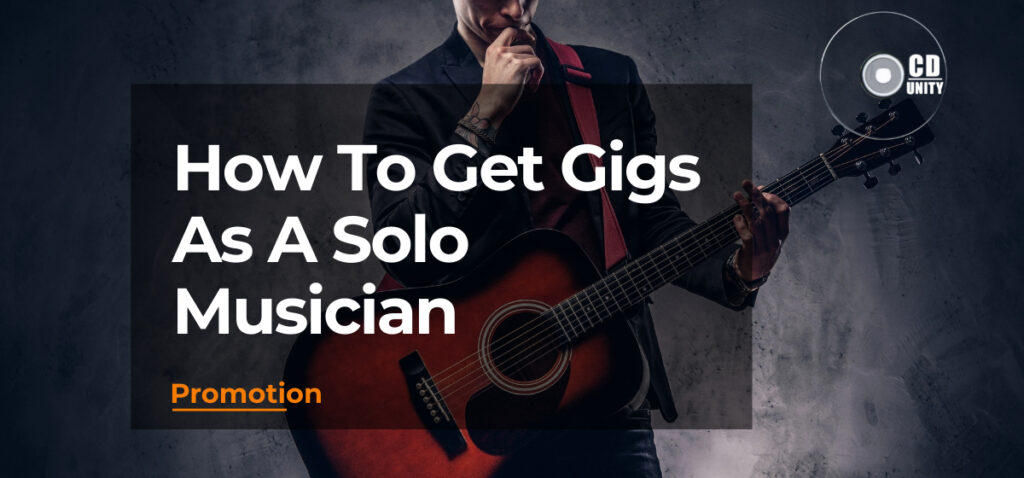
How To Get Gigs As A Solo Musician
Struggling to book gigs as a solo musician? You’re not alone. Many talented artists find it tough to get noticed and secure their first gig.
This guide will show you how to stand out, network, and use social media effectively. Keep reading for practical tips that can help you succeed!
Key Takeaways
- Identify Your Niche: Focus on a specific music genre to attract the right fans and venues.
- Strong Online Presence: Use social media effectively. Share clips, engage with fans, and reach out to venues online.
- Network Actively: Attend local shows and open mic nights. Connect with other musicians and promoters.
- Professional EPK: Create an impressive Electronic Press Kit with your bio, high-quality photos, music samples, and performance videos.
- Diversify Income Streams: Explore session work, busking, and gig swapping to increase earnings.
Understanding the Solo Musician Landscape
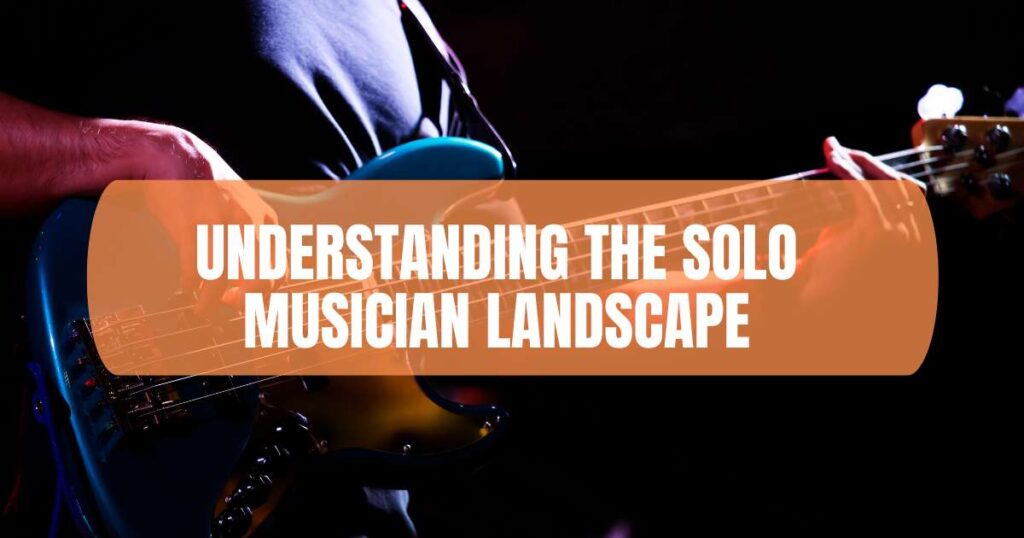
The importance of niche and genre
Finding your musical niche is key to getting gigs as a solo artist. A niche means you specialise in a specific genre, making it easier for fans and promoters to understand what type of music you offer.
Genres can be broad like rock or pop, but niches are more focused, like indie rock or synth-pop.
Understanding your niche streamlines promotional efforts. When you know your niche, it’s simpler to target the right audience and venues. This focus helps in creating a strong personal brand that stands out in today’s crowded music scene.
Building a personal brand
A strong personal brand is key for success in the music industry. Musicians should define a unique sound. This helps others recall you. Create a cohesive visual identity too. Think about your style and image.
An online presence connects with audiences better. Use social media, live streams, and newsletters to engage fans. Authenticity matters—stay true to yourself! Using data analytics can show what your audience likes best.
Adjust branding decisions based on this data to fit fan preferences.
Make sure everything about you fits together…from your look to the way you post online!
Strategies for Getting Gigs
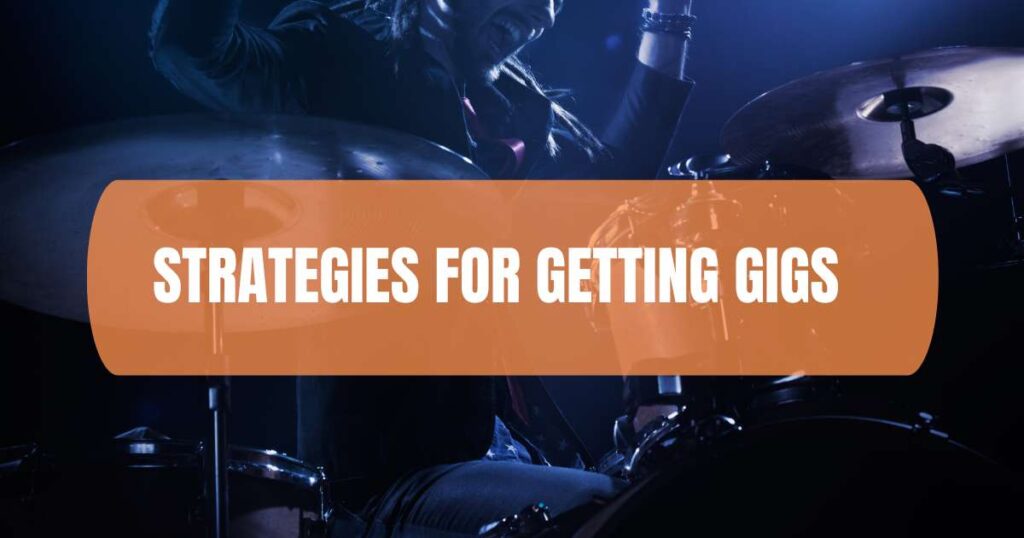
Networking with other artists and promoters
Connecting with other musicians and promoters is key to getting gigs. Attend local shows, even if you’re not playing. You’ll meet people who book shows and fellow artists. Talk about your music—share a demo or invite them to an open mic night.
Use social media platforms to reach out. Follow local bands on Instagram or TikTok, comment on their posts, and share their events. Building these relationships can lead to more gig opportunities down the line…
plus, you’ll make some great friends in the industry!
Utilising social media to reach venues and audiences
Social media is crucial for musicians to find new fans and book gigs. Short-form videos on TikTok and Instagram help you engage audiences. Post clips of live performances or behind-the-scenes moments.
Understanding how social media algorithms work can boost your content’s visibility.
Focus on one or two platforms to avoid burnout, like Facebook and Twitter. Regular posting builds a connection with followers. Use these platforms to reach out to venues too—send messages, tag them in posts, share gig highlights…
all this increases your chances of getting booked!
Participating in open mic nights and local showcases
Open mic nights offer musicians a great chance to get gigs and gain performance experience. Artists usually have 10-15 minutes or can perform 2-3 songs. Arriving early helps performers get used to the venue and calm any nerves.
These events also let musicians test new material in front of a supportive crowd.
Engaging with other artists at open mic nights builds connections that might lead to future performance opportunities. Networking is key; talking to fellow performers can help you find more gigs as a solo musician.
Local showcases are similar—show off your talent in your community, impress audiences, and create buzz around your name.

Creating a Compelling Electronic Press Kit (EPK)
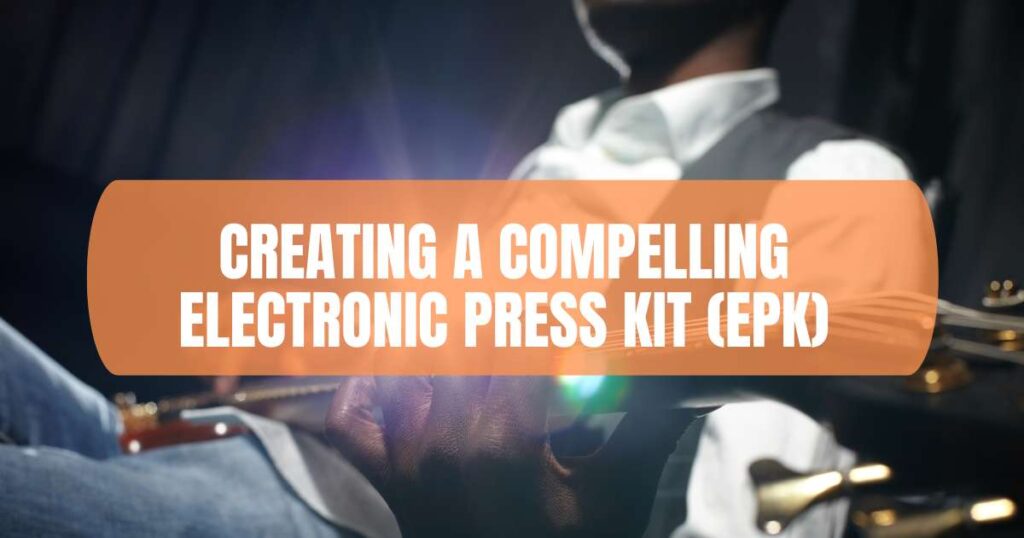
What to include in your EPK
A strong EPK is a must for getting gigs. Start with an engaging artist bio that tells a unique story and showcases your style. High-resolution photos are essential, reflecting your look and vibe.
Include links to your best songs on streaming services like Spotify. It’s crucial to have professional production quality. Add high-quality music videos to give promoters insight into your live performance skills.
Share notable highlights such as significant performances and awards to build credibility.
Lastly, make sure your contact details are clear so industry professionals can reach you easily.
How to use your EPK to secure gigs
Make sure your EPK is simple and clear. Venues and promoters are busy, so get to the point quickly. Include a short biography with your background, influences, and achievements. This helps them know who you are.
Add music samples that showcase your talent. Use high-quality images for a visual impact. Press coverage can add credibility… if you have any reviews or articles about your work, include them! Send your EPK to venues with an email introducing yourself and why you’d be a great fit for their stage.
Follow up after sending it to stay on their radar!
Diversifying Income Streams as a Solo Musician
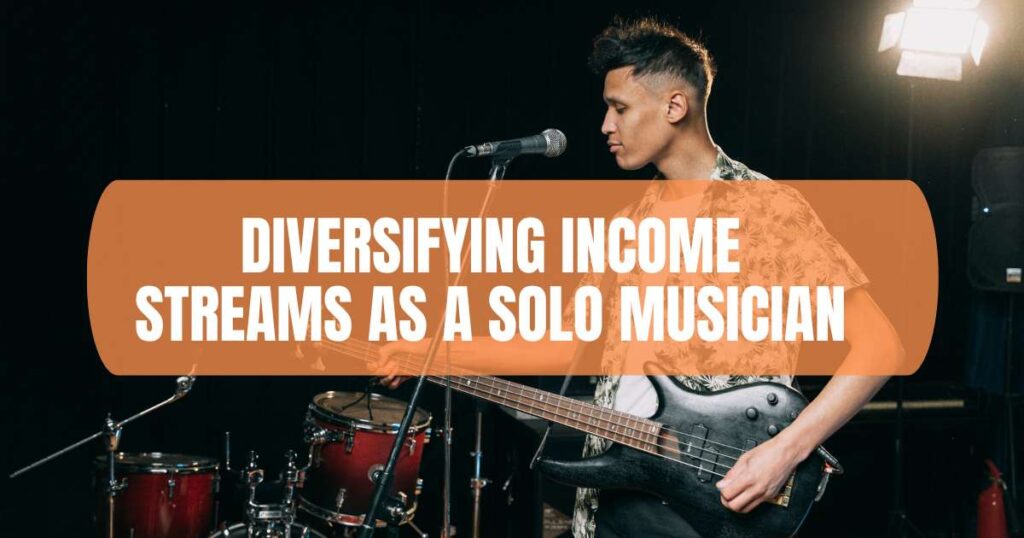
Engaging in session work
Session work can be a goldmine for solo musicians. It helps build skills and opens doors to new gigs. Musicians who are reliable, flexible, and able to play multiple instruments on short notice are in high demand.
Setting up a personal website and keeping social media accounts active can attract new clients interested in session work. This online presence shows professionalism and makes it easier for people looking to book you—whether as a guitarist or another role—to see your talent.
Networking at local music scene events is crucial too. Many opportunities arise from word-of-mouth recommendations by venue organisers or fellow musicians who’ve seen you perform live at open mics or other shows!
Exploring busking and its potential earnings
Busking can be a great way for a solo musician to earn money. The shift from cash to digital payments, like PayPal or Venmo, helps musicians get donations easily. Genre and engagement with fans matter too.
A lively performance in a busy area often brings in more money.
Musicians usually get more donations but of smaller amounts compared to circus performers. Having many fans and sharing your biography also boost donation chances. Using social media is crucial now, especially after COVID-19, to keep connected with supporters and increase earnings through digital platforms.
Gig swapping
Gig swapping with fellow musicians can boost your calendar with valuable paid gigs. It involves trading performance slots with other artists or bands. This way, both parties benefit and get exposure to new audiences.
Networking is key here. Build strong relationships within the local music community. Show up at local shows, engage on social media, and offer support through co-promotion efforts.
These actions enhance your reputation and make you a more in-demand musician for future gigs.
Building Relationships with Venues and Promoters
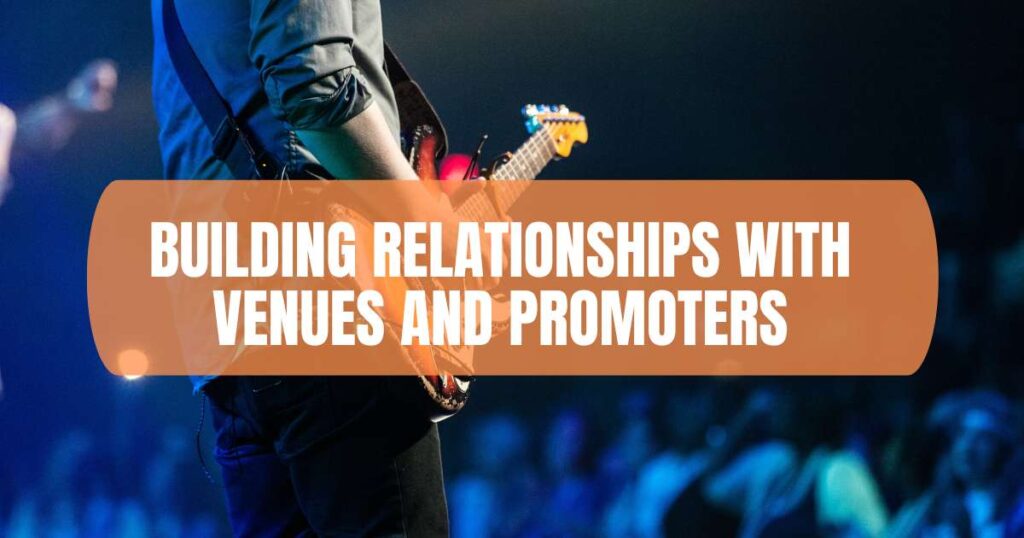
Making a good first impression
Craft your emails with care when reaching out to venues. Keep them short and professional. Include your biography, music samples, and performance videos in an Electronic Press Kit (EPK).
This can set you apart.
Arrive early at gigs. Be ready to perform on time. This shows professionalism and respect for the venue’s schedule. Research the venue beforehand to understand their setup—this helps in engaging better with sound engineers and staff.
Following up after performances
Send a thank-you email to the venue manager after each gig. Mention specific moments that were great or feedback from your audience. This shows you care and pay attention.
Contact them every few months with updates on new music or other gigs you have done. This keeps you in their mind for future opportunities. Persistence pays off – reaching out 3 to 7 times over one to two years increases your chances of getting another booking.
Understanding the booking process
Understanding the booking process can help you get your first gig as a musician. Booking agents prioritise artists with a loyal following and strong online activity. A polished website, active social media presence, and high-quality videos on platforms like YouTube are crucial.
Personal branding also plays a big part in securing gigs. Show consistency in style and genre across your profiles. Tailor your approach to each venue or promoter by learning what they look for—this will make booking easier for both parties involved.
Use email or direct messages to present yourself professionally while being approachable.
All in All
Getting gigs as a solo musician is tough, but rewarding. Use social media, network well, and keep your EPK strong. Always stay prepared and professional. Confidence on stage can set you apart…
so go out there and play your heart out!
Cheers, Josh
The Big Lists Of Music Promo Contacts
Includes PR companies, UK promoters & UK booking agents. Everything you need to put your band on the map.
Access Lists
Hello, I’m Josh, and I’ve been honing my graphic design skills for almost 15 years now, catering to the needs of bands and businesses alike. What really fascinates me is the business aspect of the music industry. In addition to my design work, I also happen to play the Hammond organ, and I strive to share my knowledge through helpful articles that I write exclusively for you all!

